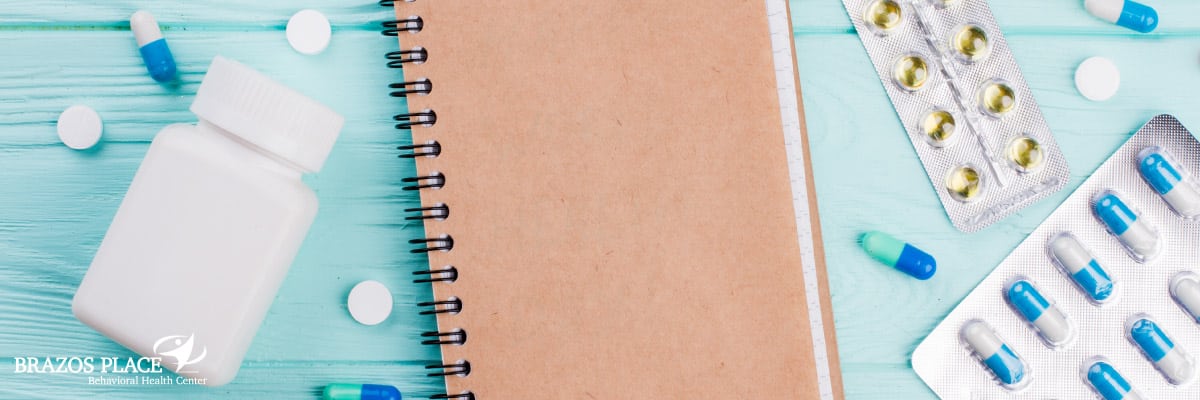Exploring Study Drugs
Study drugs are prescription drugs used most commonly to treat attention deficit hyperactivity disorder (ADHD) but have found a secondary market among students looking to improve their academic performance. These medications are known to improve focus and energy levels, allowing for extended periods of study without losing attention or becoming easily distracted.
In the highly competitive world of academic achievement, where grades can determine future opportunities, the promise of a magic pill that can boost one’s ability to learn and memorize information is appealing to many. However, this shortcut to academic success comes with its set of risks and misunderstandings about the drug’s effectiveness in improving intelligence or academic performance in individuals without ADHD.

Types of Study Drugs
1. Amphetamines
- Examples: Adderall, Dexedrine, Vyvanse
- Intended Use: Treat ADHD by increasing neurotransmitters like dopamine and norepinephrine, which help improve attention and focus.
- Misuse by Students: Often used without prescriptions in the hope of enhancing study abilities and memory for long study sessions. This misuse does not improve learning but increases attention span, which can be mistakenly perceived as enhanced cognitive function.
2. Methylphenidates
- Examples: Ritalin, Concerta
- Intended Use: Similar to amphetamines, they are used for treating ADHD. They boost dopamine and norepinephrine levels in the brain, enhancing concentration and controlling hyperactive behaviors.
- Misuse by Students: Used by individuals without ADHD to extend study periods and improve focus, based on the false belief that they directly enhance academic performance. This misuse can lead to dependency, stress, and physical health issues such as heart complications and sleep deprivation.

Risks and Side Effects
The misuse of study drugs or smart drugs carries significant health risks and potential negative effects. Without a prescription, students risk addiction, mental health issues, and a range of physical side effects. Stimulants like amphetamines and methylphenidates can cause irregular heartbeat and blood pressure, leading to cardiovascular problems. Stimulant drugs can also cause insomnia, loss of appetite, and anxiety. Long-term misuse can lead to dependency and even more severe mental health issues like depression or psychosis.
Prevalence Among Students
The misuse of study drugs among both college and high school students is a growing concern. According to a study conducted by the National Library of Medicine(NLM) around 20% of college students admitted to using prescription stimulants non-medically to improve their academic performance. This trend highlights the pressure students feel to achieve academic excellence, and the lengths some will go to meet these expectations, often without fully understanding the risks involved.
Alternatives to Study Drugs
- Time Management Techniques: Learning how to effectively manage time can help reduce the need to work overtime or pull all-nighters.
- Study Strategies and Tips: Active learning techniques, such as summarizing information, teaching concepts to someone else, and using mnemonic devices, can help you improve learning.
- Wellness and Stress-Relief Activities: Regular exercise, meditation, and proper sleep can improve focus and cognitive function naturally.
- Academic Support Services: Many educational institutions offer tutoring, study groups, and workshops to help students without the need for prescription drugs.
Getting Help for Study Drug Addiction
If you are experiencing problems with study drug addiction, it is important to know that help is available and recovery is possible. The first step is typically the hardest, which is admitting you need help. Once you have acknowledged this, reaching out for support can make a significant difference. Here are some concrete steps and helpful advices to guide you through this process:
- Talk to Someone You Trust: This could be a friend, family member, or a teacher who you feel comfortable with. Opening up about your struggles can lift a part of the burden off your shoulders and you will likely find that the people who care about you are willing to support you through your recovery journey.
- Seek Professional Help: Contacting a healthcare provider or a mental health professional can provide you with the medical and emotional support you require. Remember, these professionals are there to help you, not judge you.
- Explore Support Groups: Sometimes, sharing your experiences with others who are facing similar challenges can be incredibly comforting and empowering. Support groups provide a safe space to share, listen, and receive encouragement from people who understand what you are going through.
- Educate Yourself: Learning more about addiction and its effects can empower you to make informed decisions about your recovery. There are plenty of reputable online resources, books, and articles that can provide you with valuable insights into overcoming substance misuse.
Brazos Place Approach to Student Wellness
Brazos Place supports students in recovering from study drug addiction through personalized treatment plans that address both the addiction and its root causes. Our approach includes educational workshops to promote healthier study habits and access to mental health professionals to support student’s overall well-being. Brazos Place focuses on holistic recovery, which helps students build a foundation for long-term academic and personal success without dependence on study drugs.
Frequently Asked Questions
Which drug is best for studying?
No drug can safely enhance studying for those without ADHD. The best approach is to adopt effective study strategies and healthy lifestyle choices.
Does Adderall actually help with studying?
For those with ADHD, Adderall can improve focus and attention. However, its effectiveness as a study aid for those without ADHD is not supported by evidence and comes with risks.
Does ADHD medication help you study?
ADHD medication is designed to treat the symptoms of ADHD, not to enhance academic performance in individuals without this condition.
What’s better Adderall or Ritalin?
The effectiveness of Adderall versus Ritalin varies based on the individual’s health needs and should be determined by a healthcare professional.
What drugs make you focus?
Prescription ADHD medications can help individuals with ADHD focus. For those without ADHD, focusing strategies and healthy habits are recommended.
What is the safest study drug?
There are no “safe” study drugs for non-prescribed use. The safest and most effective way to improve study habits is through non-pharmaceutical methods.
Does Xanax help you focus?
Xanax is not a focus-enhancing drug. It is an antianxiety medication and can impair cognitive function.
How can I focus without Adderall?
Implementing time management strategies, engaging in wellness activities, and utilizing academic resources can help improve focus without medication.
What does Xanax do?
Xanax reduces anxiety by depressing the central nervous system, which can lead to sedation and relaxation, not enhanced focus or cognitive ability.
What does Adderall do to a normal person?
In individuals without ADHD, Adderall can lead to a false sense of enhanced focus or productivity, along with potential side effects and risks of addiction.
Gender-Specific Rehabilitation Services
Ready to take control and make a change right now? Discover the only alcohol rehab center in Houston, TX that can really help you change your behavior and turn your life around. Know someone that needs help? Our integrated approach to alcohol rehab can help your loved one find peace and a new life! Give us a call: 1-855-862-3278
Admission Criteria:
- Adults 18 years of age or older
- Screened by staff
- Medically Stable
- Desires treatment







